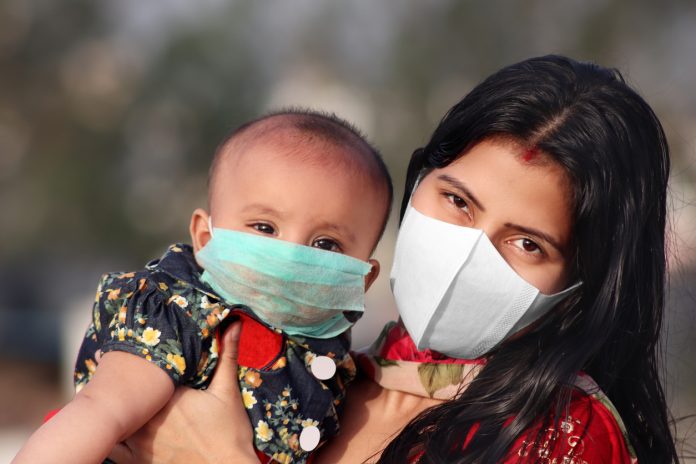On World Epidemic Preparedness Day, we look at what three years of the pandemic should make us realise, if we haven’t already

Believe it or not, we have been living with the COVID pandemic for three years now. Just when everyone thought it was on its way out, the virus returned with a bang, forcing countries such as India to review the situation and rehash their pandemic-fighting strategies. Now, it seems that we may have to live with this pandemic forever, as scientists have been warning us for a while.
So, what have we all learned from this experience? With today (December 27) being World Epidemic Preparedness Day, here is a list of the lessons the COVID -pandemic has taught us over three years.
Whether we learn those lessons is up to us. But if we do, we may be better prepared to handle such pandemics in future instead of getting caught with our pants down as in 2020.
PERSONAL LESSON
1. The importance of self-care
The pandemic taught us that charity begins at home, that is, saving the world begins by marking oneself safe from the virus. The importance of taking the vaccine (including the booster dose). wearing a face mask, washing hands regularly, and maintaining social distancing can never be emphasised enough. That does not mean we should not meet people, party, or go on vacations. But maintaining the first three measures can allow us to do all that safely.
Also read: Top 10 events of 2022 that shaped, shook or brightened the world
At the same time, it is important to maintain a healthy lifestyle — after all, the virus puts those with comorbidities at particular risk. While healthier older people beat the virus, many younger ones fell prey to complications arising out of health issues born out of smoking, drinking, and a lack of exercise. Love yourself. It’s important. And living healthy is a part of it.
2. The importance of being responsible for others
When we live in a society, we are not only responsible for ourselves but also for other people. When the pandemic struck, it brought out the best and the worst of humanity. Many treated COVID patients like untouchables, refusing to help them and calling the cops on them instead.
Many people kept avoiding the protocol, such as wearing masks, saying they had no fear of being infected with the virus. But they became silent or asymptomatic carriers in the process, spreading the infection and putting other people, including the ailing and elderly, at mortal risk.
As the pandemic eased in 2022, most people threw caution to the wind and said goodbye to their face masks and social distancing. Now that the government is urging people to start following the COVID protocol again, few seem to be bothered, as many believe the pandemic is gone for good. Some did, but many are yet to learn the importance of being responsible for others.
3. The importance of loved ones — and even not-so-loved ones
We often take our loved ones for granted. We grumble about running errands for our family, going to school or work, and even about attending social dos.
Also read: Chinese towns see packed ICUs, crowded crematoriums as Covid cases rise
But the pandemic taught us the importance of social company, including our family members, friends, classmates, colleagues, and even the neighbourhood chaiwallah. When the country went into an indefinite lockdown in 2020, we missed even the vegetable vendor.
Tired of the lonely work from home (WFH) schedules, many wanted to go back to the office, and a generation of kids grew up without knowing what school was. The pandemic taught us, like nothing else ever could, the importance of social company, including the good, the bad, and the ugly.
FINANCIAL, PROFESSIONAL LESSONS
4. The importance of saving for a rainy day
With hospital bills running to seven-digit figures, the pandemic taught us the importance of investing in medical insurance and saving up for a rainy day. As many patients were pushed into the ICU for days and needed to be put on prolonged oxygen support, people were left with bills they could not foot.
Laptops and tablets were suddenly a must for children’s basic education, and those with a “have money, will spend” motto found themselves in a crisis. It’s important to enjoy life. But it is also important to maintain a balance and be ready for the unexpected. Nothing can be worse than dying without medical care, only because of unfettered spending.
5. The joys of remote work
Before the pandemic, remote work or WFH was largely an alien concept in India, though it was allowed in the West, albeit sparingly. While many grumbled about being holed up at home, others decided to dance in the rain.
Realising that all they needed was a laptop and an internet connection, they packed their bags and left for the Himalayas, making “work from mountains” a rage among young travellers in India. Beach-lovers left for Goa in droves.
Watch: COVID: Is China hiding the numbers?
Remote work also came as a blessing for those with family or health issues. Even though many companies have since gone back to work from office or hybrid schedules, many have continued to allow their employees this little perk. That was a blessing of the pandemic — and a lesson that a lot of work can indeed be done from anywhere!
TECHNOLOGICAL LESSONS
6. The importance funding for medical research and healthcare
During an economic recession, the first sectors to usually take the blow are the “soft sectors,” including education and healthcare. Countries spend zillions on buying arms and developing killer machines. Suddenly, in 2020, governments woke up to the importance of doctors, nurses, and medical researchers. As hospital wards overflowed with patients, medical workers became the superheroes overnight, and people thanked them by clanging pots and pans from their balconies.
What they really need is better salaries, friendlier work conditions, job security, and greater budgetary allowances to carry out medical research. Several countries, including India, came up with vaccines within months — something that usually takes years. It just showed what a little government support and encouragement can do.
7. The importance of tech inclusiveness
As the world shifted to online shopping, digital medical consultations, and online meetings almost overnight, the elderly and non-tech-savvy people were suddenly left in the lurch. Many elderly, who live alone, could not go out to buy medicines and did not know how to order them online. Children from poor families suddenly did not have access to education, as their parents could not afford smartphones for online classes.
The pandemic taught us that technology can solve a lot of problems, but it must be inclusive. We cannot leave others behind as we move ahead on the path of tech salvation. It defeats the entire purpose.
POLITICAL LESSONS
8. The importance of international cooperation
“We can’t be consumed by our petty differences anymore… We’re fighting for our right to live, to exist… We will not go quietly into the night! We will not vanish without a fight!” Remember that emotional speech by the US President (played by Bill Pullman) in the 1996 Hollywood superhit Independence Day? In 2020, the global community was faced with an alien, too, though not the little green men. The entire world was fighting an alien virus, and it became important to fight together by not being “consumed by petty differences,” simply “to exist.”
Watch: Despite COVID scare, tourists throng Shimla
The COVID pandemic showed us the importance of global cooperation as the world gets increasingly smaller by the day. One little virus outbreak in a corner of China brought the entire world down on its knees within weeks. We tried to learn from each other’s mistakes; some bullied, and some begged for help.
But the bigger lesson we learned from the pandemic was the importance of international cooperation at least in sharing information, medical research, medical equipment, and technology.
9. The importance of government policy shift
No government in the world passed the test with flying colours. China tried to control the virus with an iron fist, but is now paying the price because most of its population did not gain herd immunity. So are countries like Japan and South Korea. India declared an indefinite lockdown overnight, forcing its massive migrant population to march hundreds of miles back to their home states. Yet, it could not stop the virus from spreading.
The US chose its economy over its people’s lives, leading to the deaths of more than one million (10 lakh) citizens. Ecuador had hundreds of bodies abandoned on pavements, with no one to give them a burial. Developed countries like Russia, Germany, France, Italy, the UK and developing ones like Brazil, Mexico, and Peru suffered equally, each recording lakhs of deaths.
The pandemic showed the importance of striking a balance in government policies, with more compassion, alacrity, and better planning, as New Zealand did, first with imposing lockdowns and then with vaccination (93%).
ENVIRONMENTAL LESSONS
10. The importance of striking a balance with nature
As humans remained caged at home during the lockdown, nature came out to reclaim its space. The skies cleared up and people claimed to see more stars in the night sky than they had ever done from their polluted cities. Common birds and small animals returned to cityscapes, and waterbodies cleared up.
Nothing could have held up a mirror to show us how much damage we have inflicted on the planet than the COVID-19 pandemic did. Whether we learn the lesson and become more responsible towards the planet is up to us. But the pandemic did its best to teach us the lesson.






